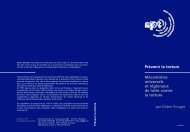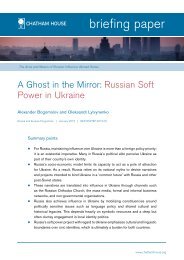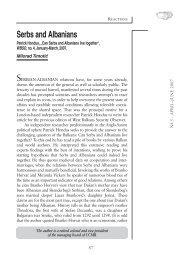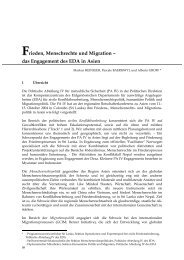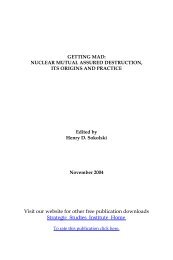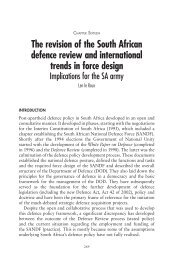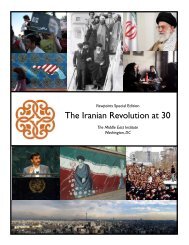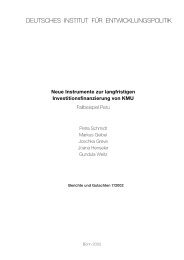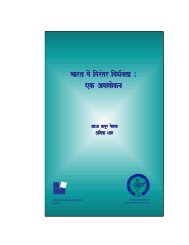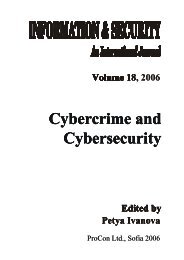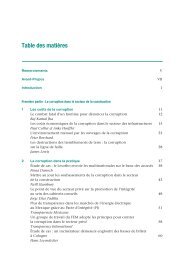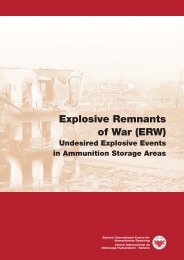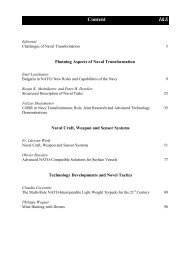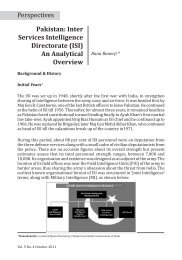Andreas Stamm Eva Dantas Doris Fischer Sunayana ... - ETH Zürich
Andreas Stamm Eva Dantas Doris Fischer Sunayana ... - ETH Zürich
Andreas Stamm Eva Dantas Doris Fischer Sunayana ... - ETH Zürich
You also want an ePaper? Increase the reach of your titles
YUMPU automatically turns print PDFs into web optimized ePapers that Google loves.
14<br />
<strong>Andreas</strong> <strong>Stamm</strong> et al.<br />
2 The role of technology and innovation in decoupling economic growth<br />
from environmental pressures<br />
Two approaches can be distinguished in analysing the interrelations between socioeconomic<br />
development and related damage to the natural environment:<br />
— To a certain extent, an already degraded resource base or ecosystem may be restored,<br />
e.g. by reforestation or soil decontamination.<br />
— Considering the limits of this first approach, efforts have to be made to effectively<br />
decouple economic growth from depletion of natural resources.<br />
Once an ecosystem is severely damaged, its rehabilitation is usually a long-term issue. In<br />
detail, that process requires very different time frames, depending on the nature of the environmental<br />
damage. For instance, while river water may return to reasonably sound quality<br />
levels within a rather short time once the contamination source has been removed, forests<br />
need many years to grow and decades to return to levels of biodiversity at least close<br />
to natural conditions. Severely eroded or degraded soils will not recover in time frames<br />
within the planning horizons of human beings. And of course there is damage to ecosystems<br />
that can never be reversed, such as the extinction of species.<br />
According to the Millennium Ecosystems Assessment, which has been described as “the<br />
largest global effort ever undertaken to catalog the state of the world’s ecosystems and the<br />
human effects on them” (Sachs 2008, 145), many ecosystems have already been degraded<br />
to such an extent that their ability to provide services for human beings (food, timber,<br />
water etc., but also regulatory, support and cultural services) has been severely reduced.<br />
Box 1: The Millennium Ecosystem Assessment<br />
The Millennium Ecosystem Assessment (MA) was called for by the United Nations Secretary-General<br />
Kofi Annan in 2000. Initiated in 2001, the objective of the MA was to provide an integrated assessment of<br />
the consequences of ecosystem change for human well-being and to analyse options available to en-hance<br />
the conservation of ecosystems and their contributions to meeting human needs. The main find-ings of<br />
this exercise may be summarised as follows:<br />
Over the past five decades, humans have changed ecosystems more rapidly and extensively than in any<br />
comparable period of time in human history, largely to meet rapidly growing demands for food, freshwater,<br />
timber, fibre and fuel. This has resulted in a substantial and largely irreversible loss in the diver-sity<br />
of life on Earth.<br />
The changes that have been made to ecosystems have contributed to substantial net gains in human wellbeing<br />
and economic development, but these gains have been achieved at growing costs in the form of<br />
degradation of many ecosystem services, increased risks of nonlinear changes, and exacerbation of poverty<br />
for some groups of people. These problems, unless addressed, will substantially diminish the benefits<br />
that future generations obtain from ecosystems.<br />
The degradation of ecosystem services could grow significantly worse during the first half of this century,<br />
and it constitutes a barrier to achieving the Millennium Development Goals.<br />
The challenge of reversing the degradation of ecosystems while satisfying increasing demands for services<br />
can be partially met under some scenarios considered by the MA, but will involve significant<br />
changes in policies, institutions and practices that are not currently under way. Many options exist to<br />
conserve or enhance specific ecosystem services in ways that reduce negative trade-offs or that provide<br />
positive synergies with other ecosystem services.<br />
Source: www.millenniumassessment.org<br />
German Development Institute / Deutsches Institut für Entwicklungspolitik (DIE)



